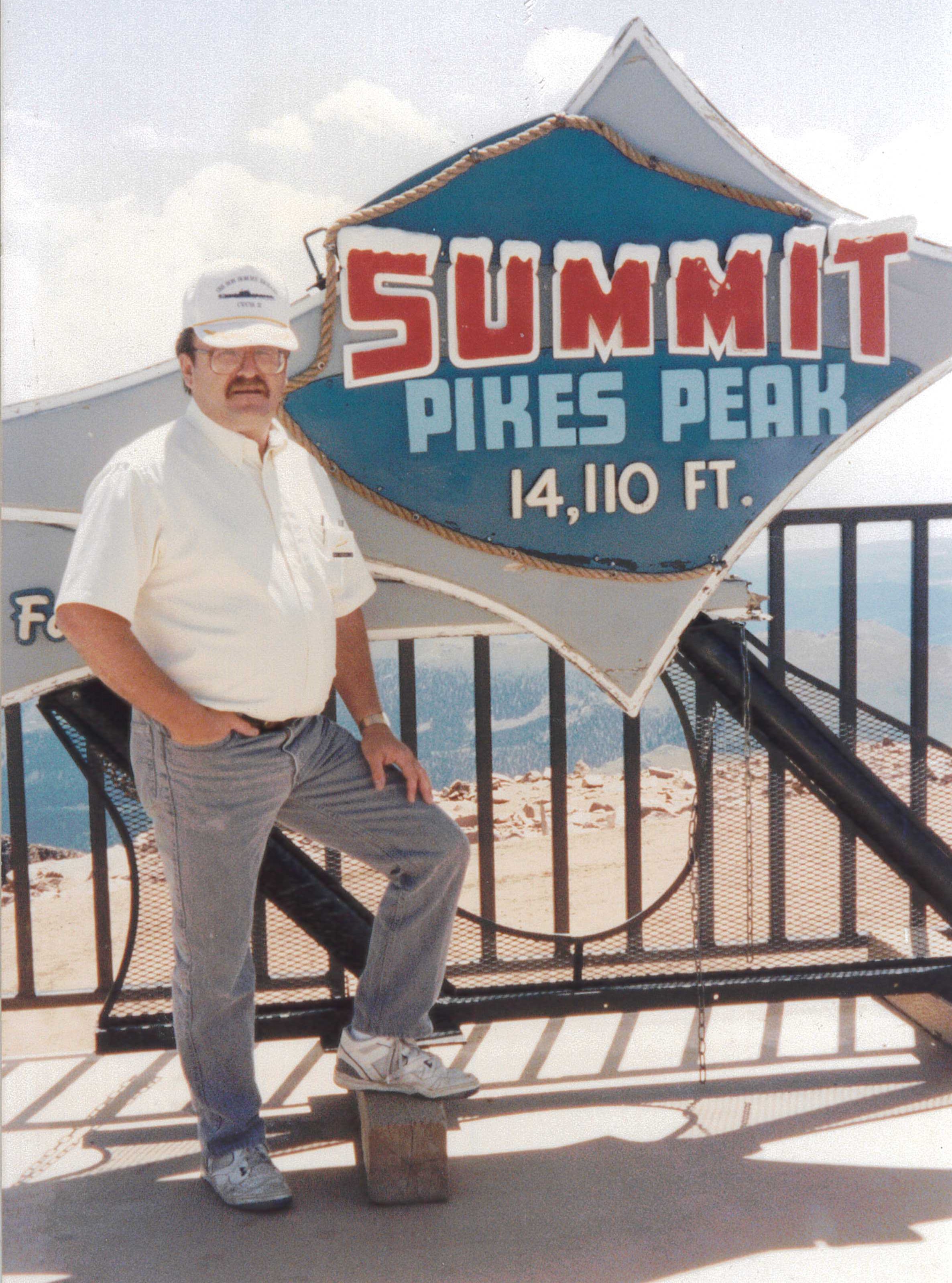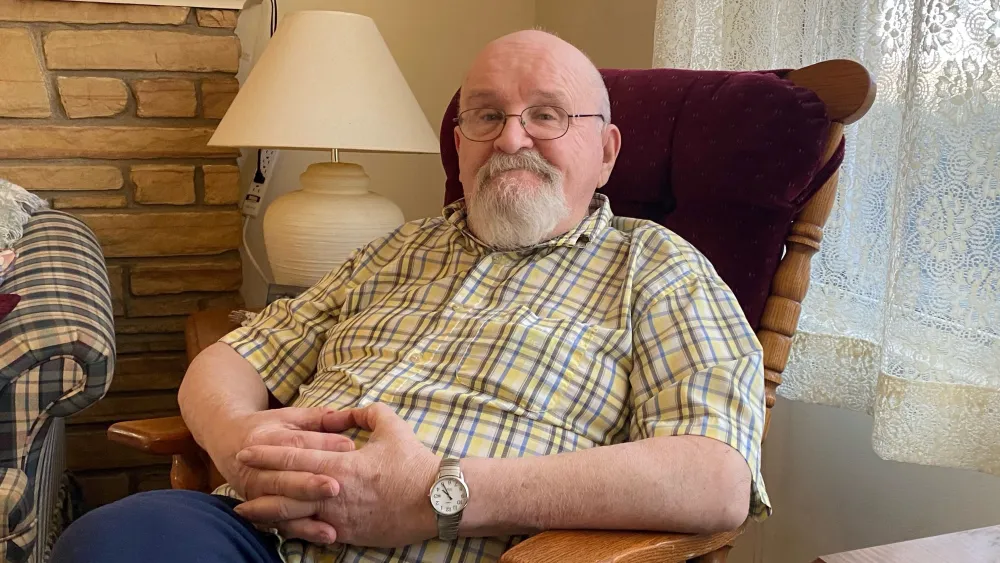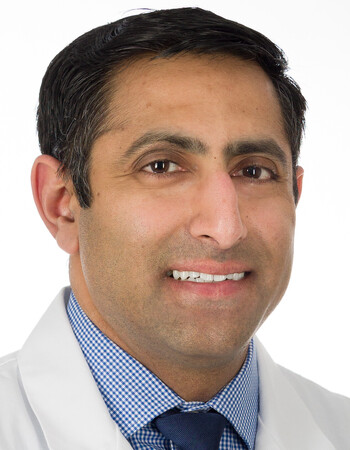





Today's Medicine
Cancer Survivor’s Message on Colonoscopies: ‘Get Your Hind End in There and Get One’
Published: March 30, 2023

Dan McFarlin isn’t shy about striking up a conversation with a stranger. And when he does, the colon cancer survivor usually brings up the importance of colonoscopies.
“I’ll talk to anybody,” he said. “In the grocery store, in the hospital, in H&R Block, wherever. Nobody is insulted that I would bring that subject up.”
Just recently, the 78-year-old Navy veteran was waiting for his wife at a doctor’s appointment when he spotted an Air Force retiree.
“I had my Vietnam hat on, and he had his Air Force hat,” Dan said. “I shook his hand and said, ‘Let me ask you a dumb question. When’s the last time you had a colonoscopy?’ I just said it out of the blue. Then I said, ‘Get your hind end in there and get one.’ And I relayed my story to him.”
Screening Can Catch Cancer Early
A colonoscopy – one of several colorectal cancer screening options – is a common procedure that allows a provider to examine the entire length of a patient’s colon. If necessary, the provider can collect tissue samples for biopsy and remove polyps – abnormal tissue growths that are the most common causes of colon cancer. Colorectal cancer causes more than 50,000 deaths each year. But when caught early, it’s highly treatable.

Dan had his first colonoscopy decades ago. The procedure found nothing unusual, but it was performed without sedation – an experience that led to his reluctance for further colonoscopies. He had another colonoscopy about 10 years ago, again with no unusual findings, but he then brushed aside recommendations for regular screenings for someone his age.
His mind began to change in the past few years as two neighbors battled esophageal cancer. Meanwhile, family members urged Dan to get recommended cancer screenings, including a colonoscopy.
“It was constant,” he said. “They kept harping on me. They kept on me relentlessly to have it checked.”
Dan made up his mind to get screened again, but now life got in the way. He found himself busy caring for his wife during her own health challenges – and putting off scheduling a colonoscopy.
“She was my main priority,” he said.
“Very Lucky”
Dan has always considered himself pretty healthy, but last summer he began experiencing fatigue and noticing blood in his stool. He dismissed the dark stool as a side effect of taking iron supplements, but when he started becoming lightheaded and couldn’t stand, he knew something was wrong. After an episode in which he passed out in October, his family took him to the Methodist Hospital Emergency Department.
Dan was admitted and treated for anemia, but his symptoms pointed to something else.

“Those are all the herald signs of potential colon cancer,” said Asish Patel, MD, a surgical oncologist at Methodist Estabrook Cancer Center.
A colonoscopy at the hospital found a tumor nearly 9 centimeters in diameter – about the size of a grapefruit. Dr. Patel performed a laparoscopic partial colectomy to remove the part of Dan’s colon with the tumor and any associated lymph nodes. The good news: The tumor was stage 1 and hadn’t spread.
“It was surprising, given the appearance and size of his tumor, that his lymph nodes were negative,” Dr. Patel said. “I consider him to be very lucky. Usually we associate symptomatic tumors with advanced stage cancer.”
“I’m Blessed”
Because Dan’s tumor was caught early, he didn’t need chemotherapy or other treatment. He’ll undergo CT scans and blood tests every six months for a year, and a follow-up colonoscopy in the fall. Depending on his results, Dr. Patel may ease his surveillance plan.
“Although it was an early stage tumor, given the size and symptoms that he had, I’m being extra cautious,” Dr. Patel said.
Dan’s case is a perfect example of the importance of colorectal cancer screening, Dr. Patel said. Could this tumor have been caught sooner, when it was smaller and not yet causing symptoms?
“Absolutely,” Dr. Patel said. “The message I take from his story is that it can happen to anyone. That’s why screening is so important. The other important point is that symptoms should never be ignored.”
Dan is back to his usual routine now, including volunteer shifts at the Omaha VA Medical Center. And any chance he gets, he’s spreading the word about colonoscopies. If his message helps even one person, he said, it’s worth the effort.
“I figure I’m blessed, and I would like to bless someone else, too.”
More Resources
- Review the latest colorectal cancer screening recommendations.
- Find a Methodist primary care provider who fits your needs.
- Read more inspiring stories about Methodist patients and staff.


